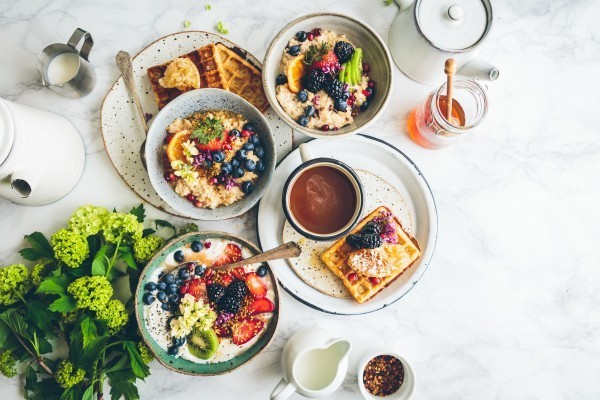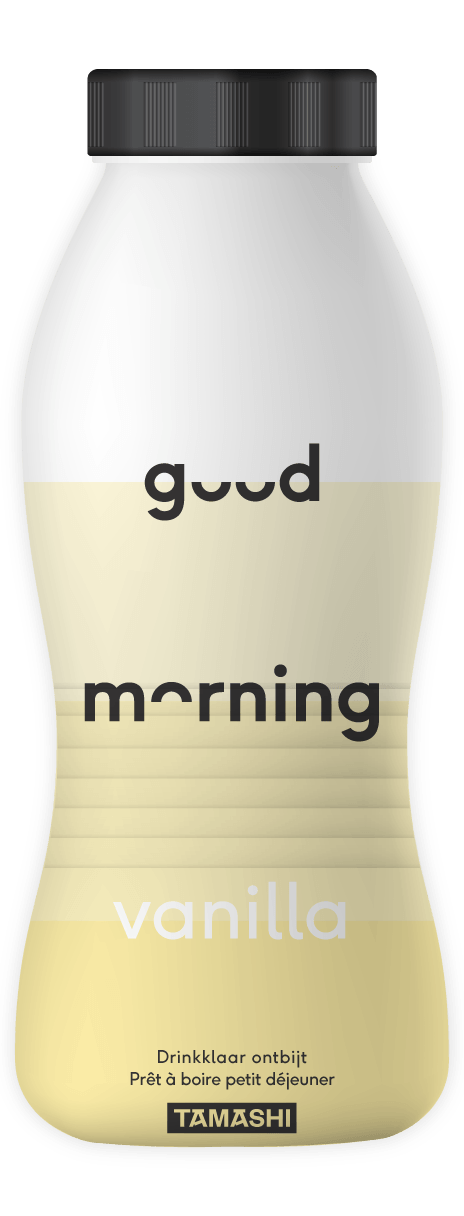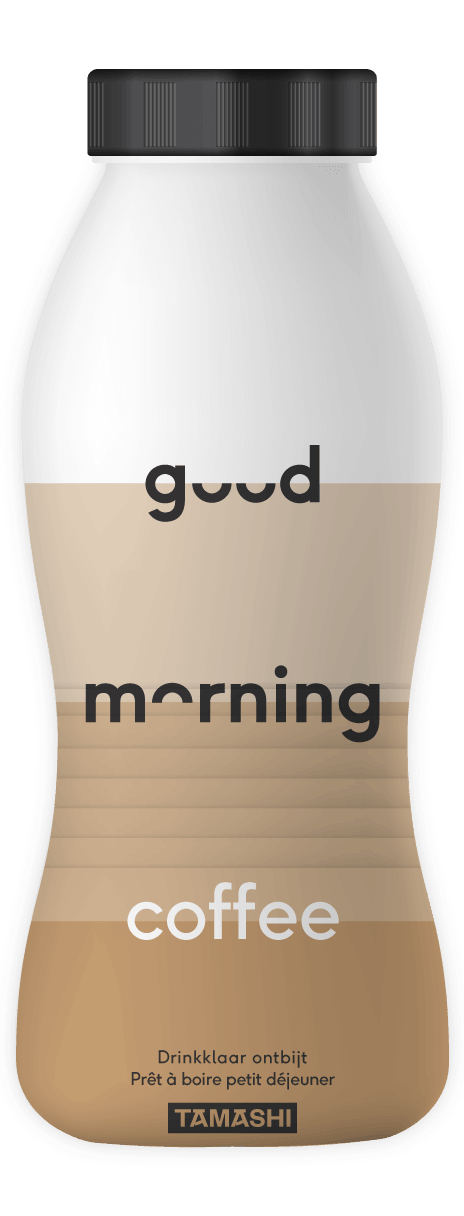
Everything you want and need to know about plant-based protein
When you hear about protein, you often think of meat, fish or milk products. These are all forms of animal protein. An undervalued and less known form of healthy proteins are vegetable proteins. Why these are so important and how you can consume them, you will discover here.
What are proteins and why are they important?
Let’s start with the basics. Can you guess what this is?

You look at the general structure of an amino acid. Amino acids are the building blocks of protein in body cells.
In our gastrointestinal tract, the proteins we get from high-protein food are split into amino acids in order to be absorbed by the body.
Protein, like magnesium, is an essential nutrient for our body. Your body needs protein to build and repair your cells, hormones, enzymes and defences. All of your body’s cells are partly made up of proteins that need a new supply every day. Because just like with a house, it is difficult to build without building blocks.
The amount of protein you need every day is different for everyone. In general, it is recommended to take 0.8 to 1 gram of protein per kilogram of body weight. Do you exercise a lot? Or in case you are pregnant or recovering from a disease, for example, you can count a bit more.
Plant-based protein vs animal protein
Many people automatically think of meat, fish or milk products as the source of protein par excellence. It is indeed a fact that this is an extremely high-protein food if you look at the number of grams per weight of food. Animal proteins also contain the essential amino acids that our body needs for muscle building.
Don’t forget that plant-based foods also contain a lot of protein. Think, for example:
- bread
- pasta
- rice
- wholegrain
- legumes
- nuts
Plant-based proteins are sometimes called “incomplete” because they lack certain essential amino acids. Undeservedly so. Because if you eat these foods in combination with each other (which is usually the case in practice), they complement each other and are perfect sources of protein.
Good combinations of ‘total’ plant-based proteins are, for example:
- cereals + pulses
- cereals + dairy
- wheat + egg
- wheat + cheese
- corn + dairy
- oats + nuts
- cereals + vegetables
- legumes + seeds
- legumes + egg
A high consumption of animal proteins is often accompanied by a high consumption of saturated fats. Animal proteins also contain a lot of sulphurous amino acids that acidify your body. To restore the acid balance, your body extracts calcium from your bones and teeth. Too much animal protein can therefore cause extra bone decalcification.
Vegetable proteins do not have those disadvantages. Moreover, they are a rich source of multiple carbohydrates, vitamins, minerals and vegetable substances that make your immune system happy. They also contain the necessary fibres, which in turn are good for your intestines.
It is therefore better to opt for lean animal products and alternate sufficiently with sources of vegetable protein. Vary enough, then you get enough protein and essential amino acids.

How do you get enough protein every day?
The table below gives a nice example of foods that provide 10g of protein per serving:
| Animal-based | Plant-based |
|---|---|
| 2 eggs | 4 slices of wholemeal bread |
| 40g cheese | 250g cooked pasta |
| 50g beef | 150g cooked lentils or other legumes |
| 50g chicken | 300ml soy milk |
| 50g fish | 100g of soy meat |
| 200g yogurt | 60g nuts |
Practical tips for eating more protein
- Make sure you have a healthy breakfast and lunch with sufficient protein: add nuts to your yoghurt or oatmeal, for example. For lunch you can think of a base of vegetables and meat, fish, egg with nuts and seeds.
- Alternate meat, fish, poultry, egg and vegetarian with for diner. Combine animal and vegetable proteins
- As a snack, take a handful with seeds, seeds or nuts: this is a great addition of protein to your meals.
Do athletes really need to eat more protein-rich food?
In the sports world they throw all kinds of promising protein shakes and other protein products around your ears. Do athletes really need all those meal replacements and protein supplements? The answer is: no, not necessarily.
Endurance athletes need extra protein during heavy training periods due to the higher energy cost of their training and to keep the recovery process optimal after an effort. Also strength athletes who do bodybuilding during the first period of intensive strength training need more protein than non-athletes to promote muscle building. But: since your muscles adapt to resistance training, the strength athlete’s requirement is only slightly higher.
The table below gives you a quick overview of the protein requirement per type of sport:
| Men | Protein requirement (g/kg/day) |
|---|---|
| Non athletes | 0.8 – 1.0 |
| Elite endurance athletes | 1.6 |
| Endurance athletes | 1.2 |
| Recreational endurance athletes | 0.8 – 1.0 |
| Strength training | 1.4 – 1.7 |
| Resistance training with focus on muscle gain | 1.5 – 1.7 |
| Resistance training with focus on maintenance | 1.0 -1.2 |
| Women | Protein requirement (g/kg/day) |
|---|---|
| Non athletes | 0.8-1.0 |
| Female athletes | About 15% less than male athletes |
All the necessary protein requirements can easily met by means of good diet. A healthy and varied diet provides more than enough proteins. Those who exercise more, also eat more and therefore eat more protein almost automatically.
Under certain circumstances or out of practical necessity, when “normal” nutrition is not available, a supplement may offer a way out.
Don’t you have much time to cook or eat? Then a protein shake or a healthy meal replacement such as Goodmorning can be a handy solution to keep your protein intake on track.
Remember: variation is super important. Variation in your menu not only ensures a good mix of proteins, but also a balance of proteins with carbohydrates and other nutrients.
More articles
Stay informed
Sign up for the Goodmorning newsletter.
You dream at night. In the morning, you make them come true! Join our community and become the best version of yourself!





